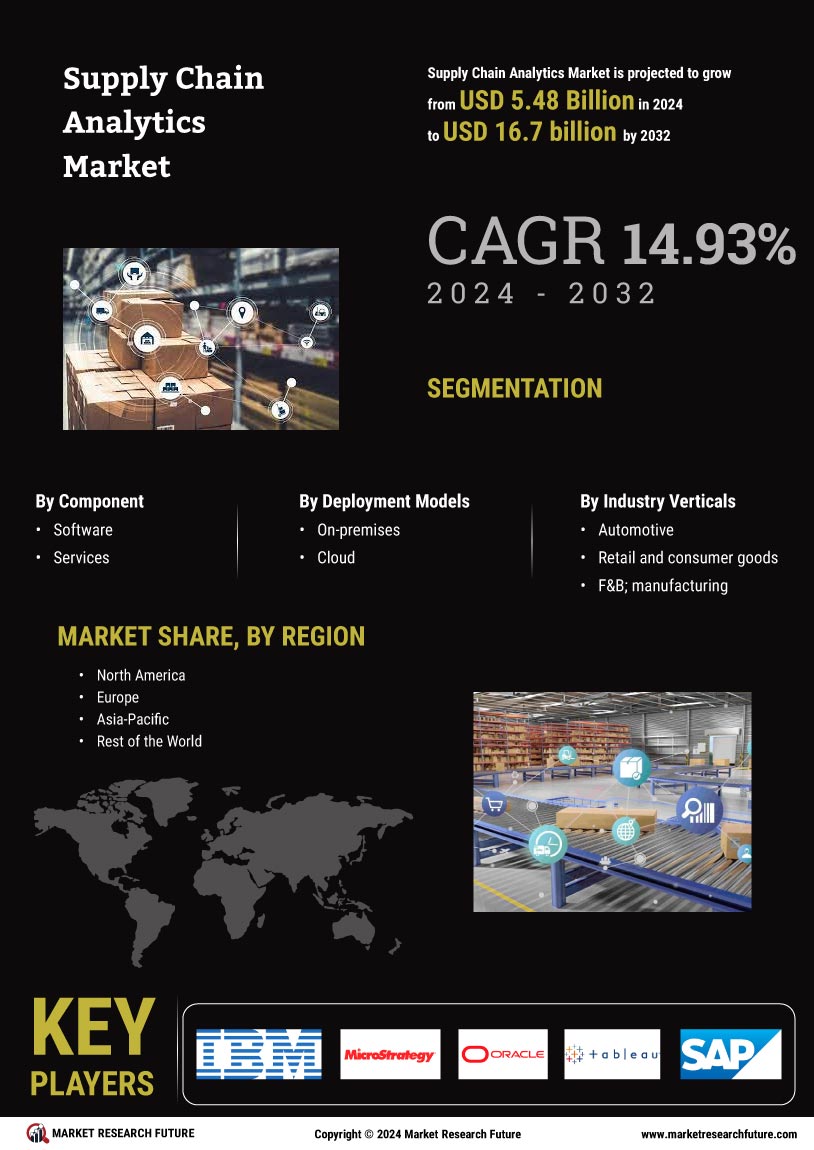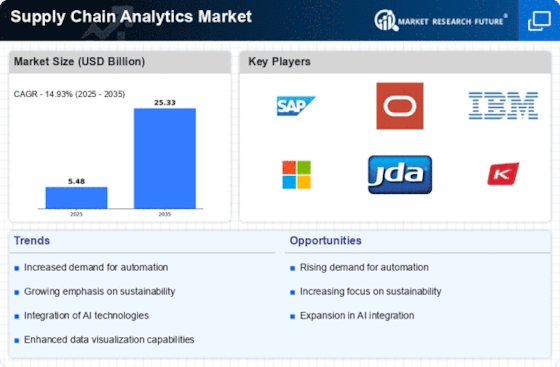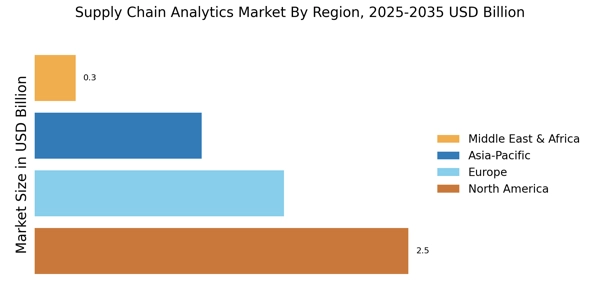The Supply Chain Analytics Market is currently characterized by a dynamic competitive landscape, driven by the increasing demand for data-driven decision-making and operational efficiency. Leading vendors are launching integrated supply chain analytics platforms to deliver real-time visibility and predictive intelligence. Leading supply chain analytics companies such as SAP, Oracle, and IBM are driving innovation through AI-powered platforms. Key players such as SAP (DE), Oracle (US), and IBM (US) are at the forefront, leveraging their technological prowess to enhance supply chain visibility and responsiveness. SAP (DE) focuses on integrating advanced analytics with its existing ERP solutions, thereby enabling businesses to optimize their supply chains holistically. Oracle (US), on the other hand, emphasizes cloud-based solutions that facilitate real-time data access and
predictive analytics, positioning itself as a leader in digital transformation. IBM (US) is investing heavily in AI and machine learning capabilities to provide actionable insights, which collectively shapes a competitive environment that is increasingly reliant on technological innovation and strategic partnerships.
The market structure appears moderately fragmented, with a mix of established players and emerging startups. Key business tactics include localizing manufacturing and optimizing supply chains to enhance resilience and responsiveness. The collective influence of these major players fosters a competitive atmosphere where agility and adaptability are paramount. Companies are increasingly focusing on supply chain optimization strategies that not only reduce costs but also improve service levels, thereby enhancing customer satisfaction.
In August 2025, SAP (DE) announced a strategic partnership with a leading logistics provider to enhance its supply chain analytics capabilities. This collaboration aims to integrate real-time logistics data into SAP's analytics platform, allowing clients to gain deeper insights into their supply chain operations. The strategic importance of this partnership lies in its potential to provide customers with a more comprehensive view of their supply chains, thereby enabling better decision-making and improved operational efficiency.
In September 2025, Oracle (US) launched a new suite of AI-driven analytics tools designed specifically for supply chain management. This initiative reflects Oracle's commitment to innovation and its focus on providing clients with advanced predictive capabilities. The introduction of these tools is likely to enhance Oracle's competitive positioning by offering clients the ability to anticipate disruptions and optimize inventory levels, thus driving greater supply chain resilience.
In July 2025, IBM (US) expanded its AI-driven supply chain solutions by acquiring a startup specializing in blockchain technology. This acquisition is expected to enhance IBM's offerings by integrating blockchain's transparency and security features into its supply chain analytics. The strategic significance of this move lies in its potential to provide clients with a more secure and efficient way to track and manage their supply chains, thereby addressing growing concerns around data integrity and security.
As of October 2025, the competitive trends in the Supply Chain Analytics Market are increasingly defined by digitalization, sustainability, and the integration of AI technologies. Strategic alliances are becoming more prevalent, as companies recognize the need to collaborate to enhance their technological capabilities and market reach. Looking ahead, competitive differentiation is likely to evolve from traditional price-based competition to a focus on innovation, technology integration, and supply chain reliability. This shift underscores the importance of leveraging advanced analytics and technology to create more resilient and responsive supply chains.


















